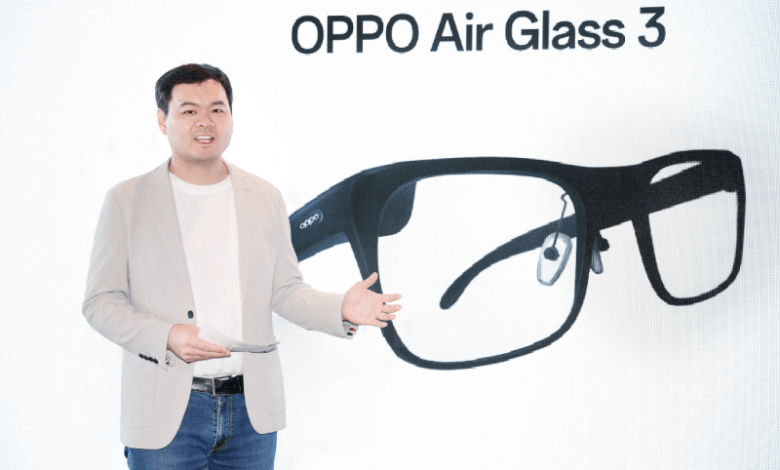
OPPO has made a powerful statement in the rapidly evolving world of augmented reality (AR) with the unveiling of a prototype for its next-generation assisted reality glasses, the OPPO Air Glass 3. This launch, unveiled at Mobile World Congress (MWC) 2024, underscores the growing momentum in a sector widely viewed as the future of immersive computing following Apple’s recent launch of the premium Vision Pro.
The OPPO Air Glass 3 prototype boasts an impressive array of features designed to offer users a glimpse into the potential of seamless and sophisticated AR experiences. At just 50 grams, they mimic traditional eyewear providing a level of comfort that sets them apart from bulkier AR/VR headsets. OPPO’s self-developed resin waveguide offers incredible visual clarity with a brightness exceeding 1,000 nits. It’s important to note that this is a prototype, and aspects like pricing and the final design of the device will be revealed at a later date.
OPPO’s AndesGPT on the Air Glass 3
OPPO has taken a major step forward by integrating its proprietary AndesGPT model into the Air Glass 3 prototype. This integration unlocks a wide range of AI-powered capabilities, significantly enhancing the user experience. AndesGPT belongs to a family of AI models known as Generative Pre-trained Transformers (GPTs). The world was first amazed by the capabilities of these models when OpenAI unveiled its revolutionary GPT-3, which could generate realistic text, translate languages, and even write different kinds of creative content.
With AndesGPT, users can interact with the glasses using an AI voice assistant, offering hands-free control over tasks like music playback, voice calls, and information display.

Affordable AR/VR Dominance
The OPPO Air Glass 3 enters a market experiencing a surge in innovation and competition as tech giants rush to provide consumer-friendly AR solutions following Apple’s much-hyped (and expensive) launch of the Vision Pro. OPPO is demonstrating the potential to deliver high-quality AR experiences with powerful AI integration at a more accessible price point, a key factor likely to shape the adoption of this transformative technology.
OPPO envisions applications for the Air Glass 3 prototype extending far beyond gaming and media consumption, potentially transforming fields like education, healthcare, and navigation. This demonstrates a desire to establish VR/AR technology as a genuinely transformative tool in everyday life.
OPPO’s bold move with the Air Glass 3 prototype emphasizes the company’s commitment to shaping the future of personal computing. As AR and VR technologies continue to evolve, OPPO wants to position itself as a potential leader in providing innovative and accessible solutions, signaling an exciting future for immersive experiences in the years to come.





